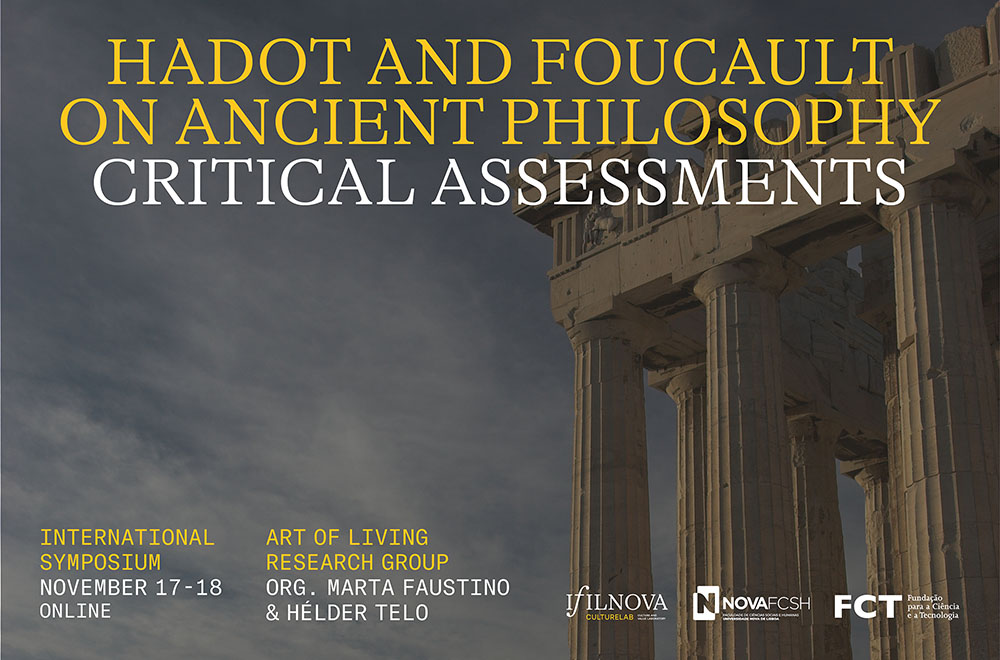Hadot and Foucault on Ancient Philosophy: Critical Assessments

Pierre Hadot’s thought was largely developed on the basis of his interpretation of ancient philosophy, and the same applies to Michel Foucault’s late thought, which is in many important aspects inspired by and congenial with Hadot’s. Their interpretations have become very well-known and influenced not only ancient studies, but also contemporary debates on what philosophy is or should be. However, as it generally happens with the most interesting and original approaches, their reading of ancient philosophy is not consensual and many scholars (Martha Nussbaum, John Sellars and John Cooper, among others) have criticized their interpretation on several crucial points – such as the idea and role of spiritual exercises/technologies of the self; the apparent neglect of rationality, rational argumentation and truth; the conception of the very process of self-transformation; the insufficient characterization of what distinguishes philosophy from other arts of living, especially religion; etc.
The aim of this symposium is to discuss these and other possible criticisms, in order to work towards a critical assessment of Hadot and Foucault’s approach to ancient philosophy. To that end, the symposium will bring together scholars of ancient philosophy, on the one hand, and specialists in the thought of Hadot and/or Foucault, on the other. While the former will engage with particular aspects of Hadot and/or Foucault’s readings of ancient philosophy, the latter will reply to already well-known polemic issues in both authors’ approaches. In so doing, the symposium will cover the central concepts and ideas of these two authors, approaching them from different perspectives and appraising both their weaknesses and their strengths, in order to provide a deeper insight into the importance of these authors for our understanding of ancient thought and perhaps the very way we conceive of and practice philosophy.
Signup link here.
UTC / GMT / Lisbon time

